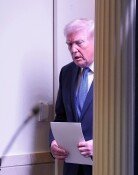This years Possession Taxation on Apartments
This years Possession Taxation on Apartments
Posted March. 04, 2005 22:37,
The property tax of some apartments in Seoul was estimated to rise by up to 50 percent, as property taxes and aggregate land taxes will be combined and taxation was adjusted to the market prices this year.
Seoul City explained yesterday, Judging from a simulation of the rate of increase in property taxes on the basis of the year-end tax standard value in 2004, property taxes will increase by up to 50 percent every year after this year.
According to the simulation, a total of 6,740,000 woncomprised of a combined property tax of 4,920,000 won and a comprehensive real estate tax of 1,820,000 won that is imposed on apartment houses of more than 900 million wonwould be charged this year for a 68-pyong apartment at Tower Palace in Dogok-dong, Gangnam-gu, whose tax standard value set by the National Tax Service is 2.07 billion won. This is over 2,200,000 won more than the last years 4,490,000 won, which includes the property value and the aggregate land tax of the last year.
As for a 58-pyong Hanbo-Mido apartment in Daechi-dong, Gangnam-gu, the taxation this year will reach 2,920,000 won, up about one million won from 1,950,000 won last year.
It was estimated that the rate of increase of property taxes even in the northern area of the Han River would amount to 29 to 39 percent.
The property tax imposed on a 43-pyong apartment in Seoul Garden in Chang-dong, Nowon-gu, will probably amount to 440,000 won this year from last years 340,000 won, and that of a 33-pyong Kunyoung apartment in Gongreung-dong, Nowon-gu, will be 130,000 won this year, up from 90,000 won last year.
An official of Seoul City forecasted, Although the government set the upper limit of increase in property taxes at 50 percent for each year, it is entirely possible that some southern areas of the Han River will repeatedly experience an increase by 50 percent for more than three years, and In particular, opposition from taxpayers in the area, where high-priced apartments are located, would be harsh.
For example, if 50 percent of the upper limit of property tax increase will continue to be applied to one who is charged one million won for a combined property tax this year, he or she will have to pay 1,500,000 won next year, and 2,250,000 won the year after next.
With the taxation of combined property taxes ahead, Seoul metropolitan autonomous districts will reportedly push forward the amendment of old tax regulations to lower combined property taxes by applying elastic tax rates.
With the exception of five districts (Gangbuk, Geumcheon, Dobong, Jungnang and Eunpyeong), 20 autonomous districts in Seoul and Seongnam and Guri in Gyeonggi have cut the property tax rate or retroactively applied taxation at their own discretion, as controversy over excessive taxation on property taxes was incurred last year.
Tae-Hun Hwang beetlez@donga.com







